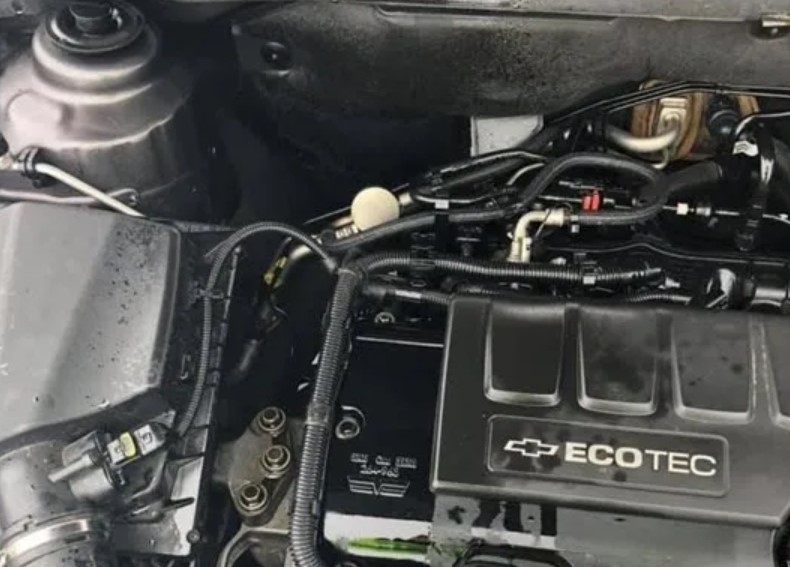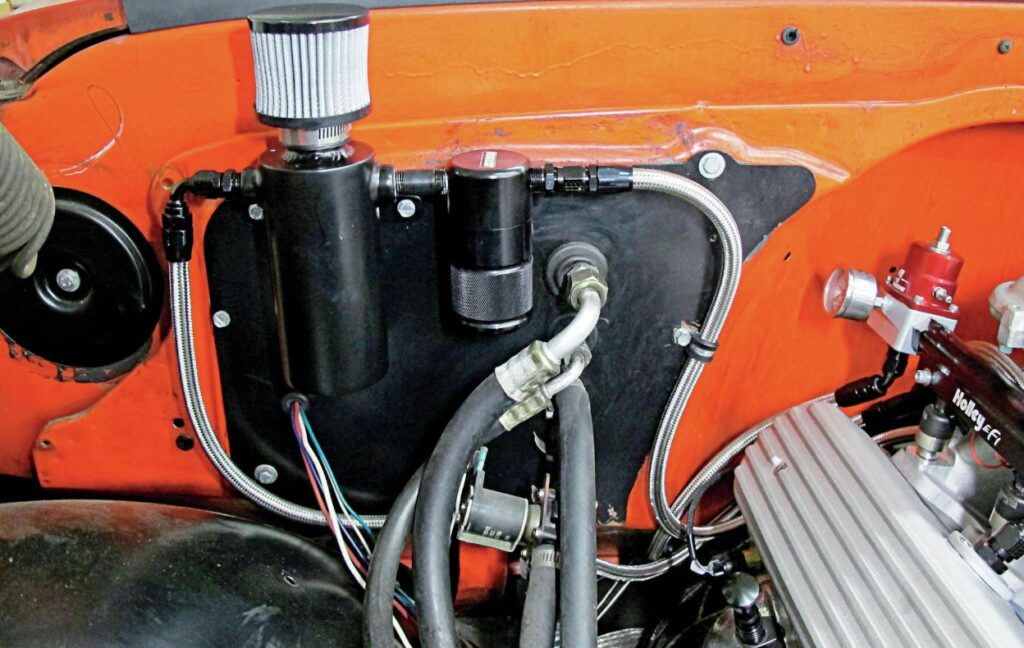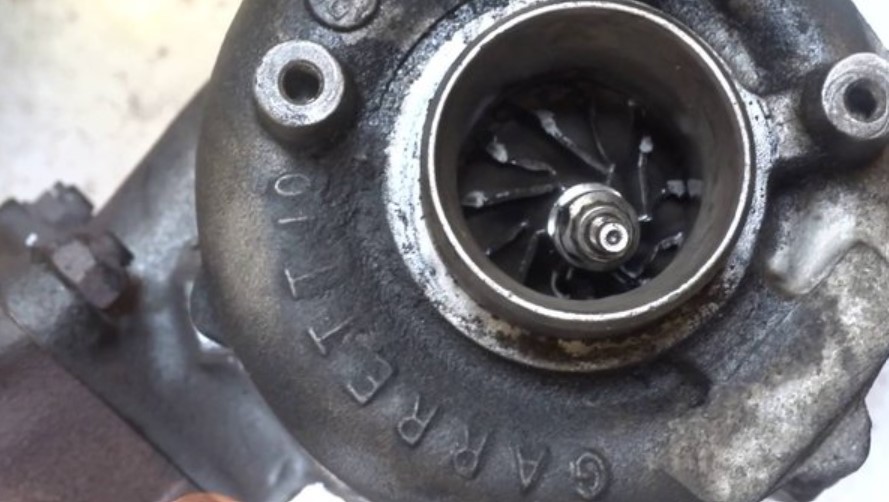What Causes High Crankcase Pressure In A Diesel Engine?
Are you looking for What Causes High Crankcase Pressure In A Diesel Engine? This question often arises among diesel engine users and mechanics. The crankcase, an integral part of a diesel engine, experiences pressure variations due to various factors. When the pressure becomes too high, it can signal potential problems within the engine. This phenomenon is not just a symptom but also a precursor to more severe engine issues.
Key Takeaways
- Common Causes: Faulty components such as worn piston rings, clogged breather systems, and malfunctioning PCV valves are primary contributors.
- Consequences: Increased crankcase pressure can lead to oil leaks, reduced engine efficiency, and potential engine damage.
- Prevention and Maintenance: Regular inspections and maintenance of engine components can prevent the occurrence of high crankcase pressure.
What Causes High Crankcase Pressure In A Diesel Engine? [Causes of High Crankcase Pressure]

Worn Piston Rings
Worn piston rings are a significant cause of high crankcase pressure. They fail to seal the combustion chamber effectively, allowing combustion gases to enter the crankcase.
Symptoms of Worn Piston Rings
- Increased oil consumption
- Reduced engine performance
- Excessive exhaust smoke
Clogged Breather System
The breather system, responsible for venting crankcase gases, can become clogged over time. This blockage leads to an accumulation of pressure within the crankcase.
Signs of Clogged Breather System
- Oil leaks from gaskets and seals
- Increased engine temperature
- Poor engine performance
Faulty PCV Valve
A malfunctioning Positive Crankcase Ventilation (PCV) valve cannot regulate crankcase pressure properly, leading to its increase.
Indicators of a Faulty PCV Valve
- Engine oil contamination
- Irregular engine idling
- Unusual engine noises
Impact of High Crankcase Pressure

Oil Leaks and Engine Damage
High crankcase pressure often results in oil leaks from engine seals and gaskets, potentially causing extensive engine damage.
Reduced Engine Efficiency
This condition can also lead to reduced engine efficiency, impacting fuel economy and overall vehicle performance.
Preventative Measures
Regular Engine Inspections
Conducting regular engine inspections can help identify and rectify issues leading to high crankcase pressure early on.
Timely Replacement of Components
Replacing worn or damaged components such as piston rings and PCV valves can prevent the escalation of crankcase pressure issues.
How Do You Get Rid of High Crankcase Pressure?
To alleviate high crankcase pressure in a diesel engine, you should first identify the root cause of the pressure buildup. Common solutions include:

- Replacing Worn Piston Rings: If the piston rings are worn or damaged, they should be replaced to restore proper sealing of the combustion chamber, preventingaskets, can prevent pressure build-up.
Can A Bad Injector Cause High Crankcase Pressure?
While a bad injector is not a direct cause of high crankcase pressure, it can contribute to conditions that increase pressure. A malfunctioning injector can lead to incomplete combustion, which can cause excessive fuel to enter the crankcase.
This, in turn, can elevate the pressure indirectly. However, it’s more common for issues like worn piston rings or a clogged breather system to be direct causes of increased crankcase pressure.
Can A Bad Turbo Cause High Crankcase Pressure?
Yes, a bad turbo can contribute to high crankcase pressure in a diesel engine. If the turbocharger has a damaged seal or is malfunctioning, it can allow oil to leak into the exhaust or intake system.

This can lead to increased oil consumption and elevated crankcase pressure. Additionally, a malfunctioning turbo may cause exhaust gases to back up, adding to the pressure in the crankcase.
What Damage Can High Crankcase Pressure Cause?
High crankcase pressure in a diesel engine can cause several types of damage, including:
- Oil Leaks: Increased pressure can force oil out through seals and gaskets, leading to leaks.
- Reduced Engine Efficiency: Elevated pressure can affect the engine’s overall efficiency, impacting fuel consumption and power output.
- Engine Wear: Over time, high pressure can accelerate the wear and tear on engine components.
- Contamination of Engine Oil: Excess pressure can lead to the mixing of fuel and exhaust gases with the engine oil, contaminating it and reducing its effectiveness as a lubricant.
Conclusion
Understanding and addressing the causes of high crankcase pressure in diesel engines is vital for optimal engine performance and longevity.
Regular maintenance and timely intervention can prevent the adverse effects associated with this condition, ensuring a smoother and more efficient engine operation. Recognizing the signs and taking appropriate action can significantly contribute to the health of your diesel engine.
People Also Ask
Can regular maintenance prevent high crankcase pressure?
Yes, regular maintenance can significantly reduce the risk of high crankcase pressure. This includes timely oil changes, checking and replacing the PCV valve, inspecting piston rings and seals, and ensuring the breather system is clean and unobstructed.
How often should I check my diesel engine for crankcase pressure issues?
It’s advisable to check for crankcase pressure issues during regular service intervals, typically every 10,000 to 15,000 miles. However, if you notice symptoms like oil leaks, poor performance, or unusual noises, you should inspect the engine sooner.
What are the consequences of ignoring high crankcase pressure?
Ignoring high crankcase pressure can lead to severe engine damage, such as compromised seals and gaskets, increased wear on engine components, buildup of sludge and contaminants in the oil, and in extreme cases, engine failure.
How do I know if my engine’s breather system is clogged?
A clogged breather system may manifest as increased engine temperature, poor engine performance, and visible oil leaks from gaskets and seals. In severe cases, you might also notice a hissing noise from the breather system due to the trapped pressure.

Welcome to the exhilarating world of Matt Rex, a professional car racer turned renowned vehicle enthusiast. Immerse yourself in his captivating blog as he shares heart-pounding adventures, expert reviews, and valuable insights on cars, trucks, jets, and more. Fuel your passion for speed and discover the beauty of vehicles through Matt’s engaging stories and meticulous expertise. Join the ever-growing community of enthusiasts who find inspiration and expert advice in Matt Rex’s blog—a digital hub where the thrill of speed meets the pursuit of knowledge.



![Fass Vs Airdog [You Decide After Reading This Post]](https://www.turbochaos.com/wp-content/uploads/2023/12/Fass-Vs-Airdog-768x567.jpg)

![Is The Mercruiser 3.0 A Good Engine? [Answered]](https://www.turbochaos.com/wp-content/uploads/2023/11/Is-The-Mercruiser-3.0-A-Good-Engine-768x519.jpg)

